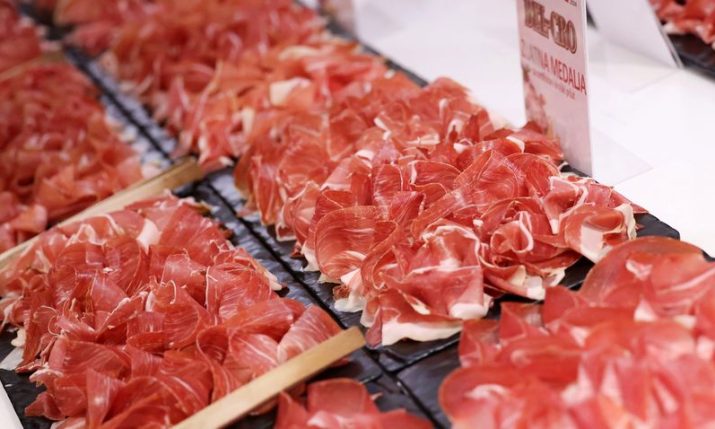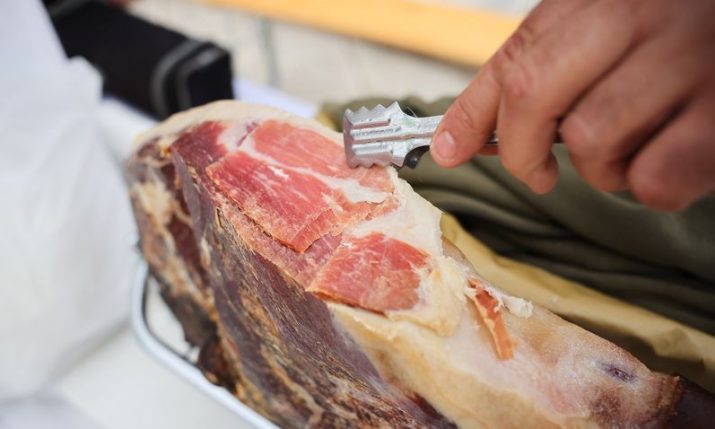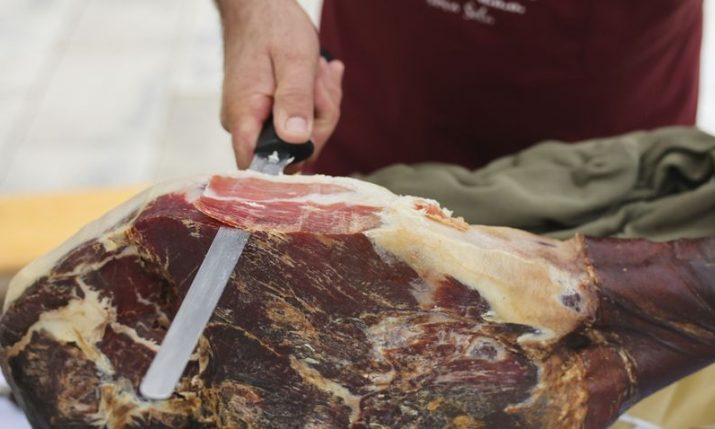A pršut from Dalmatia is named Croatia’s best
- by croatiaweek
- in News
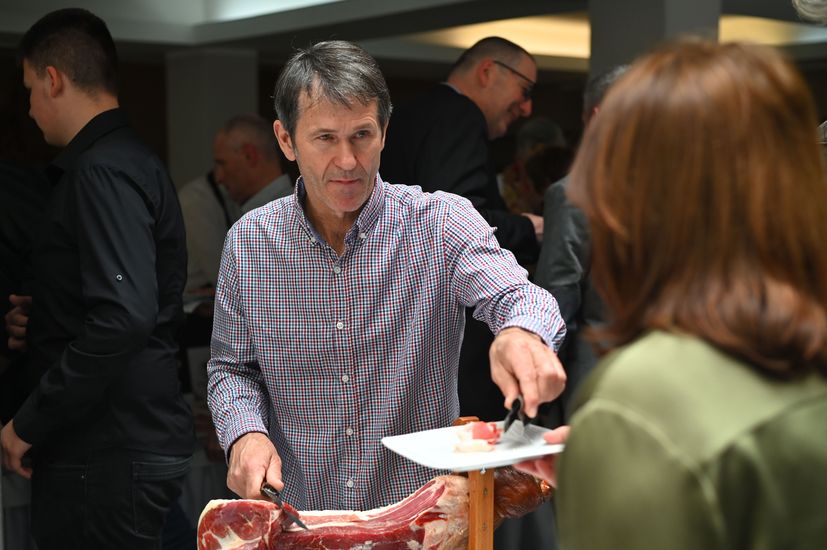
Vlade Prančić from Smjeli (Photo credit: Mateo Levak)
Smjeli, a pršut from Dalmatia, has emerged as the champion at the ninth Days of Croatian Pršut held in Rijeka.
The award-winning pršut will be presented on Rijeka’s Korzo as part of the largest manifestation of this superb delicacy.
Vlade Prančić, the owner of the pršut, is the most awarded Croatian pršut producer, and has won two championship titles from this biggest event that promotes protected Croatian pršut at the European level.
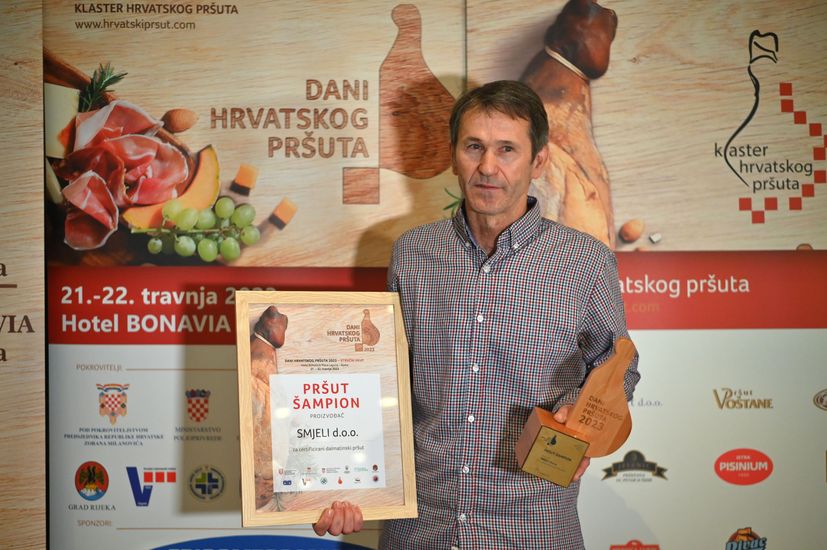
Vlade Prančić (Photo credit: Mateo Levak)
Dalmatian pršut Smjeli won in a strong competition of 14 exceptional pršuts, among which all four protected Croatian pršuts were represented: Krk, Istrian, Drniš, and Dalmatian pršut.
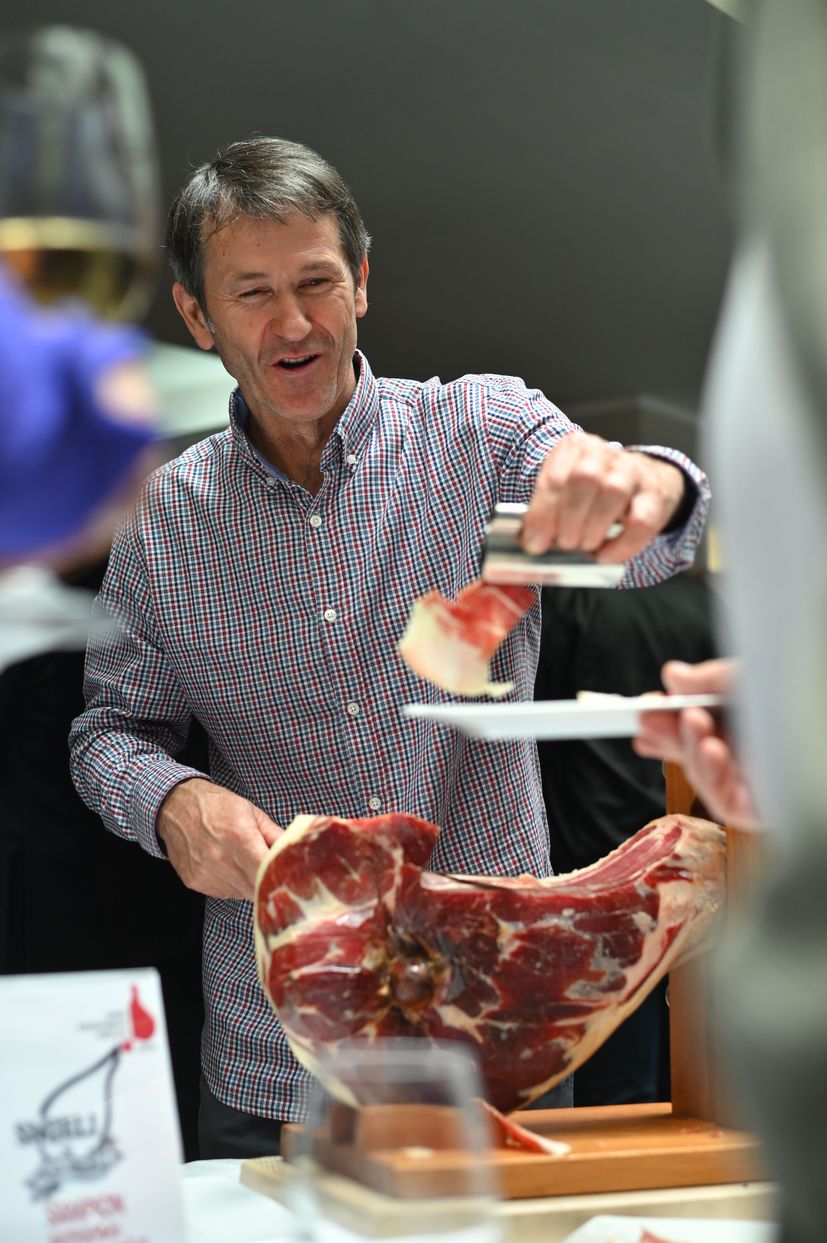
(Photo credit: Mateo Levak)
Ten out of the 14 pršuts won more than 90 points and were decorated with gold, indicating the high quality of the products.
At the Days of Croatian Pršut in Rijeka, it was pointed out that the time of the pandemic showed the fragility of tourism and that producers of pršut should ensure placement on other markets, primarily in this difficult time of inflation.
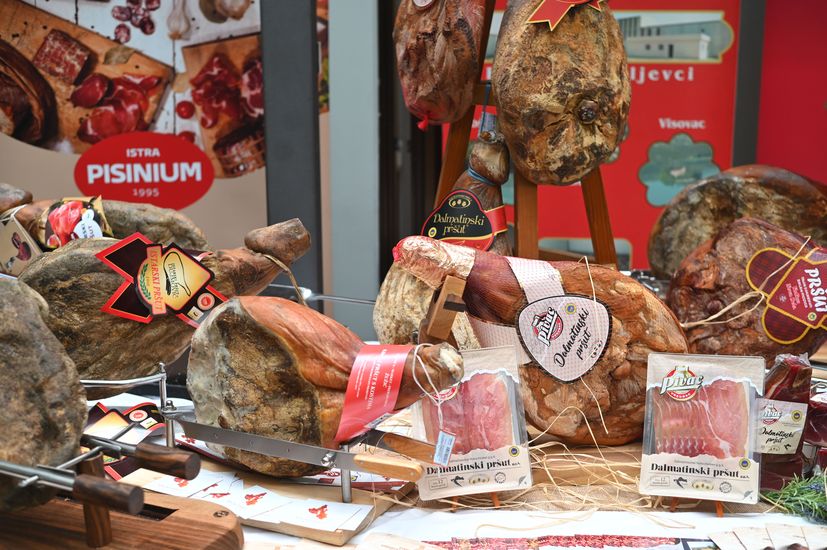
(Photo credit: Mateo Levak)
Rising input costs, such as raw materials, energy, labor, and interest rates, will inevitably lead to an increase in the price of pršut on the market.
To address this, ham makers are trying to expand their market primarily to the European Union. However, this step is neither simple nor easy because of the competition from large manufacturers and brands. Further investments are needed through production, packaging, and marketing for a quality step forward to the European market.
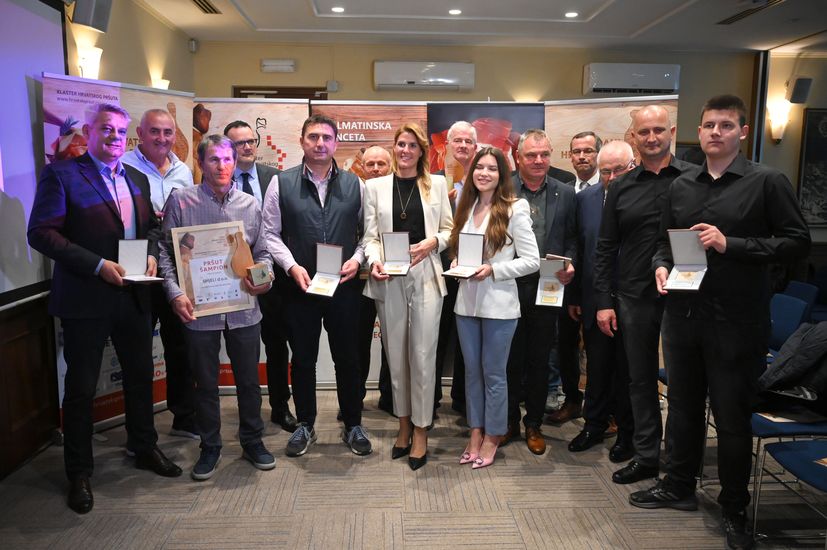
(Photo credit: Mateo Levak)
About 500,000 pieces of pršut are produced in Croatia, and about a million are eaten, indicating that the demand is twice as high as production. Croatian producers have room for growth, and this was confirmed by Željko Jovanović, President Milanović’s emissary, who pointed out that in the coming years, given the announced investments in existing and new pršut production, production will increase to 700,000 pieces.
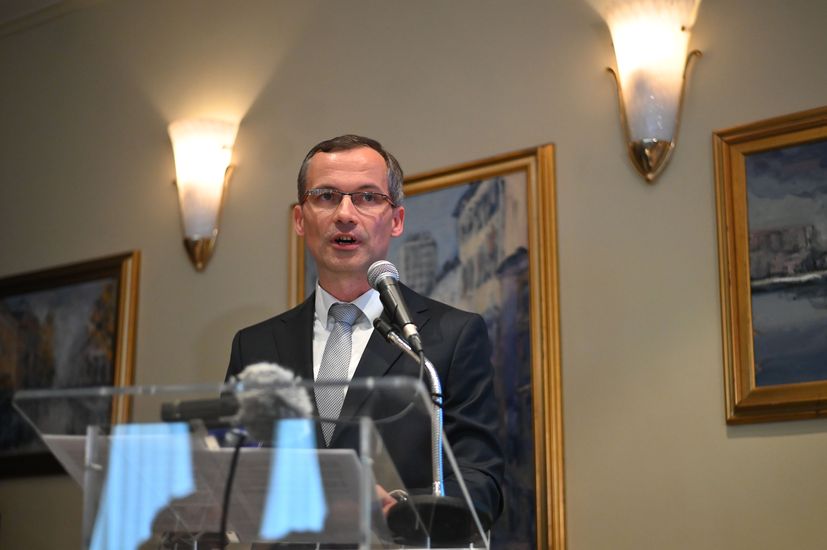
(Photo credit: Mateo Levak)
The Days of Croatian Pršut is one of the ideal forms of promoting Croatian protected pršut, which has 38 protected products, ranking Croatia seventh in the number of protected products in the EU.
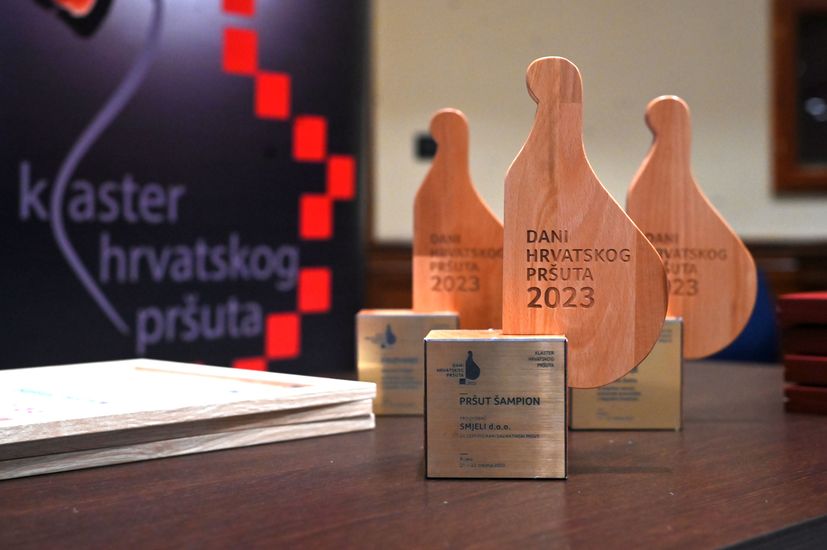
(Photo credit: Mateo Levak)
Last year, due to the reduced physical volume of agricultural production, and the recovery of tourism and the increase in tourist demand, Croatia had a record deficit in the exchange of agricultural and food products. However, there was a larger export of highly finished meat products and meat products, resulting in a foreign trade surplus of more than 34 million euros.
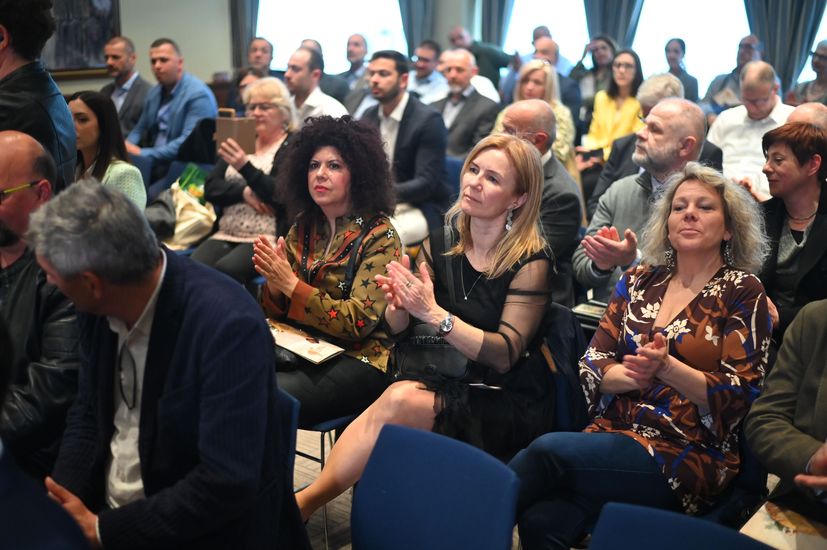
(Photo credit: Mateo Levak)
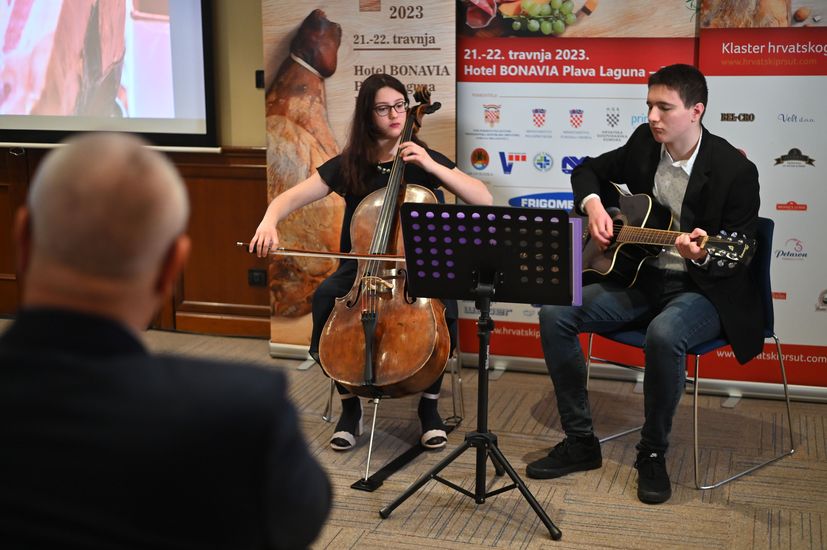
(Photo credit: Mateo Levak)
Petar Mamula, Deputy Prefect of the Primorje-Gorski Kotar County, emphasized the importance of premium products and pointed out that the Primorje-Gorski Kotar County is not an agricultural county, but it has excellent tourism results that can greatly contribute to the synergy between green and blue.
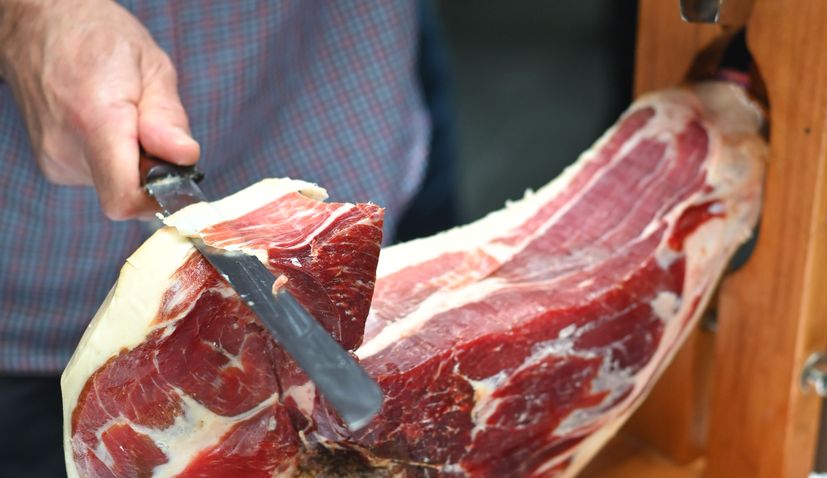
(Photo credit: Mateo Levak)
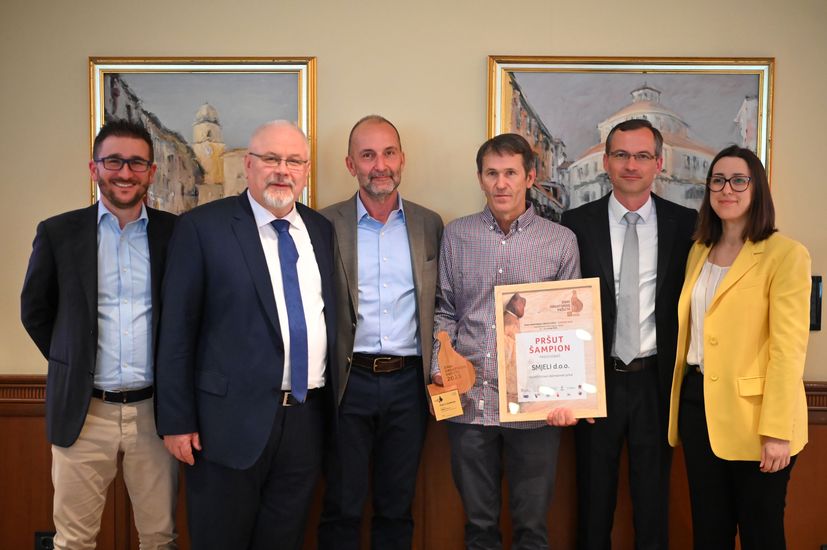
(Photo credit: Mateo Levak)
The mayor of Rijeka, Marko Filipović, highlighted the importance of gastronomic offerings in tourism and invited people to visit Korza and enjoy the award-winning and protected Croatian pršut.
